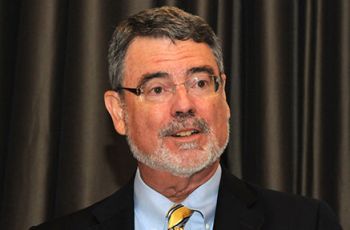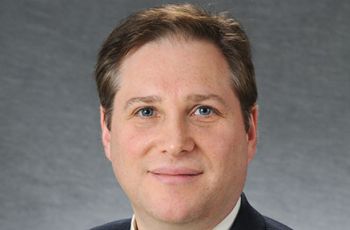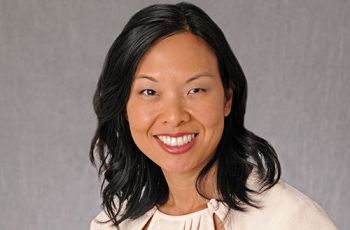Primary Care
Fitzhugh Mullan, M.D., professor of pediatrics, was quoted in The New York Times on the undertraining of physicians in the United States to meet healthcare industry demands and the industry's dependence on foreign doctors to fill the gap.
Fitzhugh Mullan, M.D., professor of pediatrics, was featured in The Hays Daily News for his 2010 article finding that top medical schools do not produce many students who 1) practice in an underserved area, 2) practice a primary care specialty, and 3) are members of an underrepresented minority…
GW Professor Argues for Quality over Quantity When it Comes to the Role of Physicians in Health Care
In a letter to the editor published in The New York Times, Michael Newman, M.D., clinical professor of medicine, says that suggestions calling for less reliance on doctors in the health care system "will result in more care but not appropriate care."
Dr. Matthew Mintz, associate professor of Medicine in the School of Medicine and Health Sciences and clinician at the Medical Faculty Associates, was interviewed on CBS Evening News about the need for primary care physicians and the fact that the federal government awarded $9.1 million to medical…
Second year medical student, Annie Mooser, penned an article for the organization, Primary Care Progress, which is a growing network of primary health care clinicians, trainees, and students engaging their local primary health care communities to promote primary care and transform care delivery and…
At first glance, the physician workforce in Washington, D.C. looks robust: about one licensed physician for every 60 residents. That’s far higher than the nationwide ratio of about one doctor for every 300 Americans.
In an event sponsored by the GW School of Medicine and Health Sciences and the GW School of Public Health and Health services, the DC Board of Medicine presented a report that details the physician and physician assistant workforce in the district.
Move over, Surgery and Emergency Medicine. Primary Care is where the excitement is these days, a group of 20 students in GW’s School of Medicine and Health Sciences came to believe during a special hands-on event at the GW Hospital in January.
According to a recent study by Katherine Chretien, M.D., associate professor of Medicine in the School of Medicine and Health Sciences, some doctors post unethical and unprofessional content on Twitter, a finding that suggests the need for more oversight of physicians' use of social media.
New research, conducted by Katherine Chretien, M.D., F.A.C.P., associate professor of Medicine at the GW School of Medicine and Health Sciences, reveals that while social media has the potential to have a positive social impact, there is need for greater accountability and guidelines, as some…


